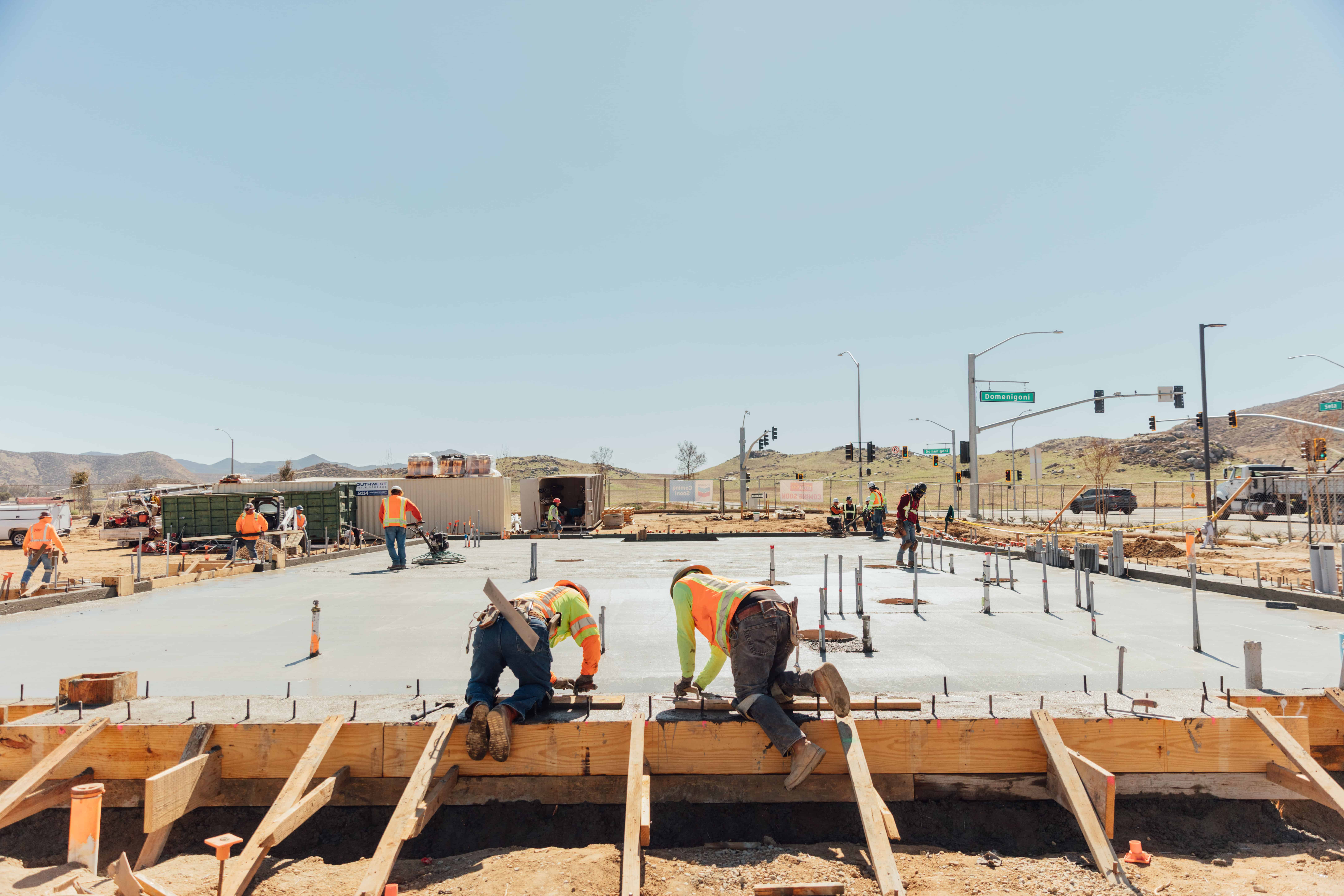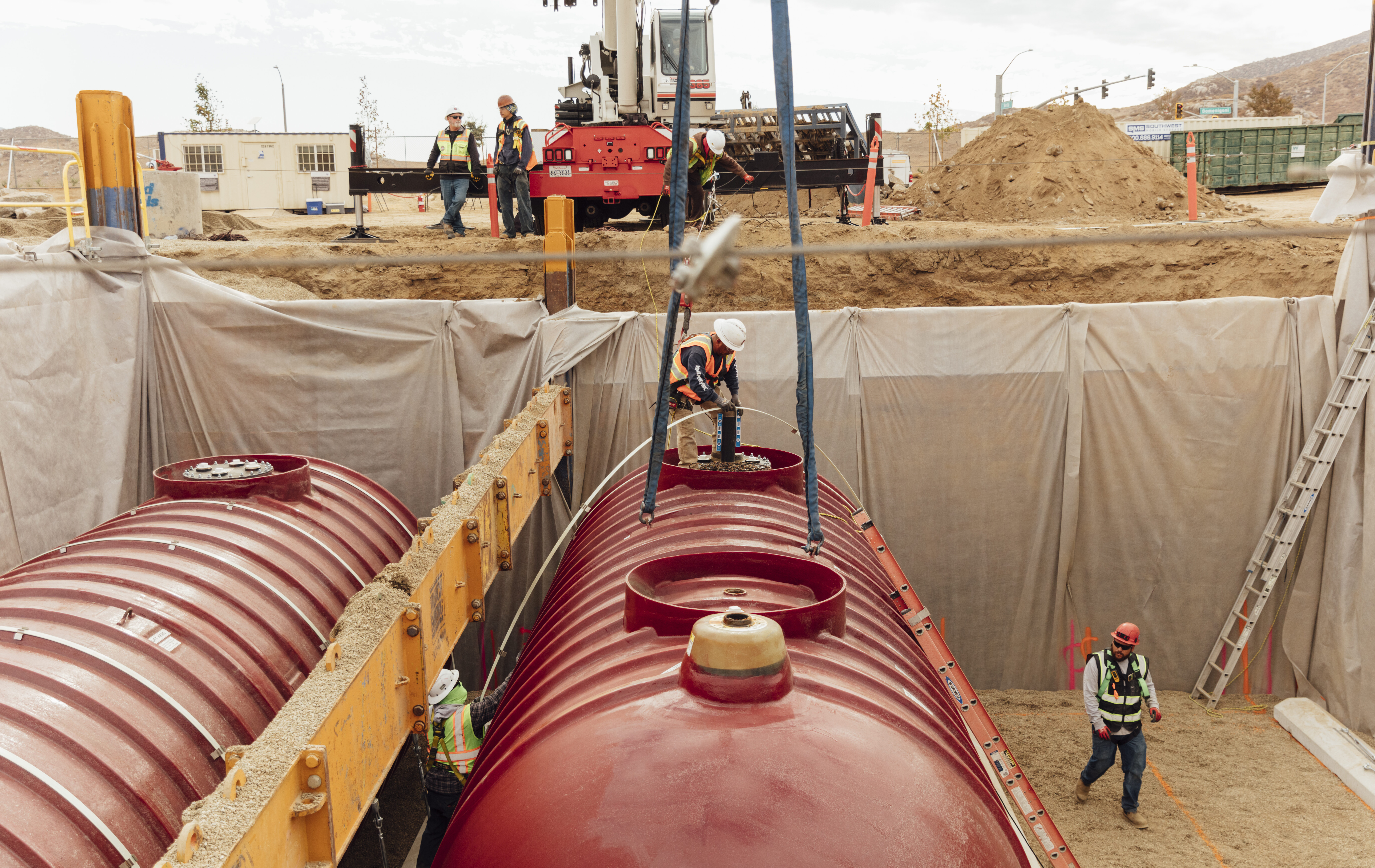As hydrogen-powered vehicles become more prevalent, hydrogen fueling stations are emerging as essential infrastructure, presenting a valuable opportunity for businesses to enter or expand in this growing market. However, building a hydrogen fueling station is a complex undertaking that requires meticulous planning and consideration of important factors that influence the station’s efficiency, safety, and regulatory compliance.
When planning a new hydrogen fueling station or expanding a traditional gas station with hydrogen fueling, key factors like location, safety, equipment, regulatory compliance, and financial investment are crucial. These elements will determine your station’s success.
Site Selection and Layout
The first and most crucial step in building a hydrogen fueling station is selecting an appropriate site. The location must comply with local zoning regulations and safety standards, and it should be strategically positioned to maximize accessibility for hydrogen vehicle users. Considerations for site selection include:
- Accessibility: Ensure the site is easily accessible for both vehicles and service personnel. Proximity to major roads and existing infrastructure can enhance convenience for users.
- Environmental Impact: Assess the environmental impact of the site. Choose a location that minimizes disruption to local ecosystems and complies with environmental regulations.
- Space Requirements: Hydrogen fueling stations require sufficient space for storage tanks, fueling dispensers, and safety zones. Adequate space is essential for both operational efficiency and safety compliance.
Safety and Risk Management
Hydrogen is highly flammable and requires special handling and storage procedures. Ensuring safety is a paramount consideration in the design and construction of a hydrogen fueling station. Key safety considerations include:
- Leak Detection Systems: Implement advanced leak detection systems to promptly identify and address any potential leaks. These systems are crucial for preventing accidents and ensuring the safe operation of the station.
- Ventilation: Proper ventilation is essential to disperse any potential hydrogen leaks and reduce the risk of explosions. The design should include adequate ventilation systems to ensure safety.
- Fire Suppression Systems: Install fire suppression systems, such as sprinklers and foam systems, to quickly extinguish any fires that may occur. These systems should be tailored to the specific risks associated with hydrogen.
Equipment and Technology
The selection of equipment and technology plays a significant role in the efficiency and effectiveness of a hydrogen fueling station. Considerations in this area include:
- Hydrogen Storage: Choose appropriate storage solutions for hydrogen, such as compressed gas cylinders or cryogenic tanks. The choice depends on factors such as storage capacity, space constraints, and safety requirements.
- Fuel Dispensers: Invest in high-quality fuel dispensers that meet industry standards and can handle the pressures and temperatures required for hydrogen fueling. The dispensers should be user-friendly and reliable.
- Compression and Dispensing Technology: Hydrogen requires compression for efficient storage and dispensing. Select advanced compression and dispensing technology to ensure fast and efficient refueling.
Regulatory Compliance
Hydrogen fueling stations must adhere to a range of regulatory requirements and standards. Compliance with these regulations is essential for legal operation and public safety. Key regulatory considerations include:
- Local and National Regulations: Familiarize yourself with local, state, and national regulations governing hydrogen fueling stations. Ensure the station design and operation comply with these regulations.
- Permitting: Obtain the necessary permits and approvals from regulatory bodies before construction begins. This process may involve environmental assessments, safety inspections, and other regulatory requirements.
- Standards and Certifications: Adhere to industry standards and certifications for hydrogen fueling stations. Compliance with standards such as ISO 14687 (hydrogen quality) and NFPA 2 (hydrogen technologies) is crucial to ensure safety and reliability.
Cost and Financing
The cost of constructing a hydrogen fueling station can be substantial, and careful financial planning is essential. Considerations in this area include:
- Budgeting: Develop a comprehensive budget that includes costs for land acquisition, construction, equipment, and operational expenses. Account for both initial capital costs and ongoing maintenance costs.
- Financing Options: Explore financing options such as government grants, private investment, and public-private partnerships. Securing funding can help offset the high costs associated with hydrogen fueling station construction.
- Cost-Benefit Analysis: Conduct a cost-benefit analysis to evaluate the long-term financial viability of the station. Consider factors such as potential revenue from fuel sales, operational efficiency, and future maintenance costs.
Maintenance and Operation
Ongoing maintenance and operation are critical for the long-term success of a hydrogen fueling station. Key considerations include:
- Routine Maintenance: Implement a maintenance schedule to ensure equipment and systems are regularly inspected and serviced. Preventative maintenance can help avoid costly repairs and downtime.
- Staff Training: Train staff on the safe handling of hydrogen and the operation of fueling equipment. Proper training is essential for maintaining safety and efficiency.
- Operational Efficiency: Monitor and optimize station operations to improve efficiency and reduce operational costs. Regularly review performance metrics and make necessary adjustments.
Be Part of the Transition to a More Sustainable World
Constructing a hydrogen fueling station involves careful planning and consideration of various factors to ensure the station’s success. By addressing these factors, you can ensure the successful establishment of a hydrogen fueling station that supports the growth of hydrogen-powered vehicles and contributes to a cleaner, more sustainable future.





